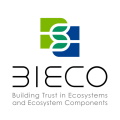Data Collection Tool
Coordinated by
UTC
Data Collection Tool (DCT) stores information from relevant vulnerability related datasets, providing a single access point to information required by the vulnerability detection and forecasting tools developed in T3.3, as well as for the failure prediction tools developed in T4.2.
Description
Describe the innovation content of the result:
The Data Collection Tool (DCT) will provide datasets gathered from BIECO’s pilots and public data sources.
Who will be the customer?
Companies using ICT systems.
What benefit will it bring to the customers?
The developed DCT is a platform aimed at collecting, maintaining, and disseminating information about discovered computer security vulnerabilities.
When is the expected date of achievement in the project (Mth/yr)?
September 2021
When is the time to market (Mth/yr)?
August 2023
What are the costs to be incurred after the project and before exploitation?
DCT is usable at this moment and can be used as it is in a safe environment. Industrialization of the product in terms of orchestration requires the integration in the BIECO Platform.
What is the approximate price range of this result/price of licences?
The usage of the product is free of charge.
What are the market size in Millions € for this result and relevant trend?
N/A (see below).
How will this result rank against competing products in terms of price/performance?
In terms of price: DCT is released as free of charge usage, so it does not have any impact on costs.
In terms of performance: This tool integrates several types of data, so there is an impact for those who use this tool, as there is no need to use different sources.
Who are the competitors for this result?
Sonatype REST API, OpenCVE.
How fast and in what ways will the competition respond to this result?
Unknown at the moment.
Who are the partners involved in the result?
UTC, GRAD, UMU and HS.
Who are the industrial partners interested in the result (partners, sponsors, etc.)?
Unknown at the moment.
Have you protected or will you protect this result? How? When?
DCT has been presented at ICTSS 2021, PROINVENT 2021, and we are planning to prepare a contribution for a journal article by the end of the project.
Other results
Domain Specific Language
The domain specific language enables specification of digital twin behaviour in a manner that can enable a predicted evaluation of its trustworthy behaviour in a simulated environment
Fail-operation clock synchronization methodology
Synchronization loss can occur due to many reasons, either because of a device or link failure or due to a targeted attack on the reference node, which supplies the corrected time to the network’s nodes.
Time sensitive network simulation
Simulate the real time communication for the distributed based on the Time sensitive network simulation. Additionally, simulate the fail-operation clock synchronization methodology. This simulation will validate the communication stack.
Remote updating- upgrading of vehicle firmware
Securing remote and in-vehicle communications against cyber-attacks, possibly performed with quantum computers in the near future, is a major goal in the automotive sector.
Extension of the approach to the communications within the whole supply chain of the Microfactory
Once the secure communication with a vehicle has been demonstrated for remote FW update, it is straightforward to extend it to a general Service-Over-the-Air architecture and even further.
Ontology Manager Tool
Ontology Manager is a Framework responsible for managing the Core Ontology used in BIECO, called DAEMON. It aims to support organizing concepts and their relationships related to System of Systems (SoS), Internet of Things (IoT), and System Components management and Monitoring.

